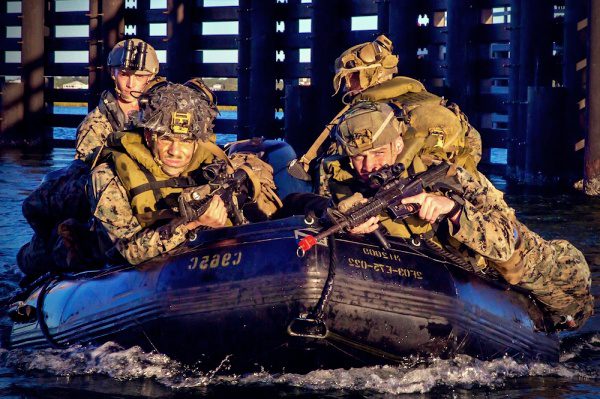Court martial appeals lawyers
Accused may request, in writing, deferment of forfeitures. RCM 1101(c)(2)
Accused burden to show “the interests of the accused and the community in deferral outweigh the community’s interest in imposition of the punishment on its effective date [e.g., forfeitures].” RCM 1101(c)(3). Applies to adjudged forfeitures (Article 57(a)(2), UCMJ; RCM 1101(c)) AND automatic forfeitures (Article 58b(a)(1), UCMJ)). United States v. Lundy , 60 M.J. 52 (C.A.A.F. 2004); United States v. Adney , 61 M.J. 554 (A. Ct. Crim. App. 2005).
Factors CA may consider include, “where applicable: the probability of the accused’s flight; the probability of the accused’s commission of other offenses, intimidation of witnesses, or interference with the administration of justice; the nature of the offenses (including the effect on the victim) of which the accused was convicted; the sentence adjudged; the command’s immediate need for the accused; the effect of deferment on good order and discipline in the command; [and] the accused’s character, mental condition, family situation, and service record.” RCM 1101(c)(3).
CA’s action on deferment request MUST be in writing and a copy provided to the accused. RCM 1101(c)(3).
CA’s written action on deferment request is subject to judicial review for abuse of discretion. The request and action thereon MUST be attached to the record of trial. RCM 1103(b)(3)(D).
CA must specify why forfeitures are not deferred. United States v. Zimmer , 56 M.J.869 (A. Ct. Crim. App. 2002). Error for the CA to deny the defense deferment request in a one-sentence action without providing reasons for the denial. Four months of confinement and the adjudged forfeitures were set aside. See also United States v. Sloan , 35 M.J. 4 (C.M.A. 1992).
United States v. Brown , 54 M.J. 289 (C.A.A.F. 2000). CA denied accused’s deferment request. The SJA memorandum to CA recommending denial was never served on the accused who argued prejudice because he was not afforded the opportunity to rebut the memorandum. The CAAF found no prejudice; however, they strongly suggested that new rules be created regarding deferment and waiver requests – rules could require an SJA recommendation with deferment and waiver requests with a corresponding notice and opportunity to respond provision.
United States v. Key , 55 M.J. 537 (A.F. Ct. Crim. App. 2001), aff’d , 57 M.J. 246(C.A.A.F. 2002). Nine days after being sentenced, the accused submitted a request asking for deferment of forfeitures and reduction. The SJA’s written response recommended disapproval, advice the CA followed. The SJA’s advice was never served on the accused. He argued prejudice claiming deferment requests should be processed like a clemency request. Although the Air Force requires that waiver requests be treated like clemency requests ( United States v. Spears , 48 M.J. 768 (A.F. Ct. Crim. App. 1998) (overruled in part on other grounds)) subject to the requirements of Article 60, deferment of forfeitures and reductions in rank do not have to be treated similarly. No requirement that an SJA recommendation regarding deferment be served on defense. Note: the CAAF affirmed without reaching the issue of whether service of the SJA’s memo is a per se requirement.
- Military Court-Martial Appeals
- Action by Convening Authority. Article 60, UCMJ; RCM 1107
- Action by the Judge Advocate General. Articles 66 and 69, UCMJ; RCM 1201
- Requirements for action on a court martial sentence
- Appeals. Deferment of confinement
- Assertions of Ineffective Assistance of Counsel
- Claims of post-trial cruel and unusual punishment
- Effectiveness of Military Defense Lawyers in the Post-trial Area
- Who may act – the person who convened the court
- General considerations
- Action on findings not required but permissible
- Action on sentence must
The court noted the absence of “new matter” and the non-inflammatory nature of the SJA’s memo in affirming. United States v. Moralez , 65 M.J. 665 (A. Ct. Crim. App. 2007). Forfeitures were adjudged at trial. After trial, the accused submitted request to the CA to (1) defer adjudged and automatic forfeitures until action, and (2) disapprove adjudged forfeitures and waive automatic forfeitures at action. The SJA advised the CA to grant the deferrals, but postpone any decision on disapproval or waiver until action. The SJAR, the defense clemency submission, and the addendum were silent to the requested disapproval/waiver request. At action, the CA approved the adjudged sentence (including forfeitures). The ACCA held that SJA should have further advised the CA on his options regarding the disapproval of adjudged and waiver of automatic forfeitures at action.

